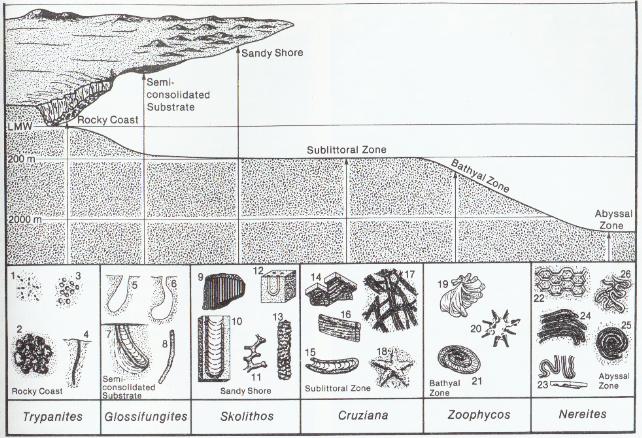Marine Distribution

Marine Distribution

In the above diagram we have a shore/marine faces
showing the different distribution of trace fossils and also their morphology.
Notice that the structures are categorized. They do not have to look
exactly the same, but they do have to be formed by the same behavior and/or
made in the same area to be of the same facies.
| Trypanites | formed in lithified substrates by boring organisms, structures are mostly tubular or vase shaped |
| Glossifungites | formed in firm substrates (unlithied) by boring organisms, structures include vertical, cylindrical, and U-shaped |
| Skolithos | formed in rapidly moving water or shifting sand environments by burrowing organisms, structures are vertical tubes or tube like |
| Cruziana | formed in moderate - low energy sands and silts by burrowing organisms, structures are U-shaped troughs with rib like striations, or burrowing network |
| Zoophycos | formed in low energy muds and muddy sands, infaunal feeding traces of organisms which are broad and looping |
| Nereites | formed in deep pelagic muds, meandering grazing or feeding traces found on the substrate, systematic pattern of meandering trace |